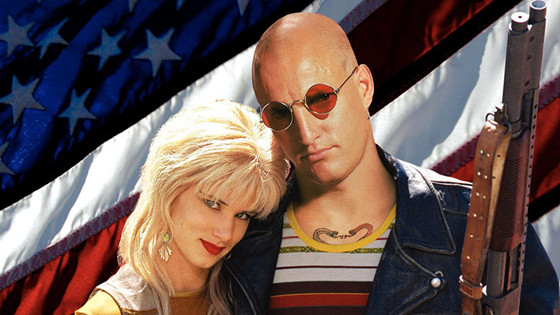
When attempting to write up a summation of Oliver Stone’s career as a film director and screenwriter, it’s next to impossible to come up with an opening sentence that can justifiably tie up his work, his stamp on modern filmmaking, or his effect on the world in general. Not even that one.
Audacious, earnest, violent, sexualized, bold, sensationalized, misogynistic, humanistic, angry, open-minded, politically incorrect, arrogant, bloated, paranoid, liberal, brilliant, and insane are all equally fair terms to use in describing Oliver Stone’s films and screenplays, though not any one of them alone does a single one of them justice.
F. Scott Fitzgerald once stated, “The test of a first-rate intelligence is the ability to hold two opposed ideas in mind at the same time and still retain the ability to function.” The same could easily be said of understanding and appreciating Oliver Stone’s work. The movies he has written and/or directed are many different things with many different and opposing statements (both personal and political) being said within them, often at the same time and almost always within the same film.
“The truth is in the lies” would perhaps be a good way to open up a summary of Oliver Stone’s work if it wasn’t a horrendous over-simplification. Stone’s work does not lie, in spite of what his many detractors would have you believe.
Whether they are works of complete fiction, based on historical events, or somewhere in-between, Stone depicts a reality that only he knows: the world, both past and present, seen through his eyes. From that perspective, his works are brutally and nakedly honest documents that are highlighted through volatile dramatizations, while not necessarily being reliable sources of the complete and total truth.
It goes without saying that Stone’s most famous and renowned works are largely based on historical events, but none of them should ever be mistaken for history lessons. They are dramatic introductions to history that open the door for personal study and thought. They are (with the exception of his fewer fictionalized pieces) interpretations of history, reflected through the opposing forces of Stone’s bleeding heart and interior violence. To put it simply, Oliver Stone’s historical films are history seen through the eyes of a very astute, very energetic, and very dangerous madman.
Stone’s results as both a screenwriter and a director can be messy, scattered, heavy-handed, and gratuitous. But he wouldn’t be Oliver Stone if he wasn’t just so damned good at all of it. Even his best work is heavily flawed, but it’s also more creative, sincere, heartfelt, involving, and, quite simply, entertaining that most the other “important” films of the last thirty years.
His films revel in and thrill with the violence they simultaneously condemn, glorify and sensualize the excess they criticize, and often fetishize their most amoral events in the name of abhorring them. When it comes to the films of Oliver Stone, the truth may not be in the lies, but it’s almost always in the contradictions.
Martin Scorsese, a former NYU professor who taught a young Oliver Stone there in the seventies, once told New York Magazine of his former student: “He’s got power and force… He has a unique style and he’s become a real personal filmmaker. No one else is doing the things he’s doing. He’s out there by himself.” That was said in 1986.
Thirty years later, the statement holds just as true, as Stone, for all his greatness and in spite of all his shortcomings, is entirely unmatched to this day. The following list of films best represent the talent, individuality, and chaotic signature that make Oliver Stone’s films and screenplays what they are world-famous for being: thrilling, eye-opening, and always-controversial cinematic rides that are truly out there by themselves.
15. (tie). Conan The Barbarian (1982), The Year of The Dragon (1985)
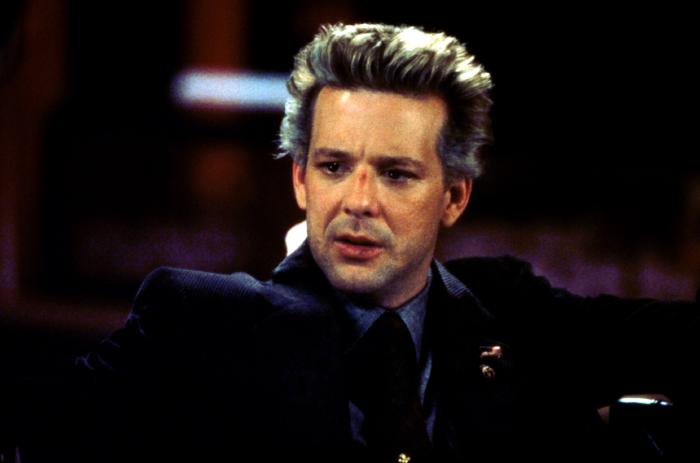
Stone’s work as a screenwriter-for-hire shows sides of him that his directorial career never fully explored. Conan the Barbarian and The Year of the Dragon are more pulpy, genre-oriented, and entertainment-driven works than the message-heavy films he is famous for delivering in the eighties and nineties. However, they still manage to carry remnants of his personal stamp, and Stone’s influence on both films enriches them, providing a weight and flair that is undeniably his and his alone.
Primarily the children of their directors (John Milius and Michael Cimino, respectively), whose tastes for excess and bravado easily rival Stone’s, the final scripts for Conan and Dragon were either heavily reworked or influenced by their guiding hands. However, Stone’s taste for showmanship, colorfully blunt and macho dialogue, and wonderfully explosive action set pieces are on full display in his scripts for the films.
Conan and Dragon are solid efforts that showcase Stone’s growing talents, and are interesting stepping stones to examine for those interested in studying the evolution of his work retrospectively.
14. (tie). W. (2008), Snowden (2016)
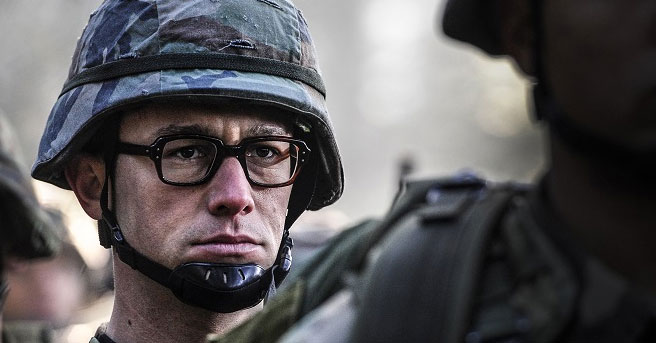
With a public whose ADD currently makes them forget the great movies that were released a year ago, let alone two decades ago, it’s safe to say that Oliver Stone is underappreciated today as both a writer and a director.
While his “edge” has been relatively softened in his twenty-first century efforts (most of which are solid, safe three-star films on a four-star scale), it is obvious that Stone still has a burning desire to communicate his interpretation of modern and historical events that have made the world (and primarily the United States) what it is today.
W. and Snowden both showcase Stone at a quieter (perhaps restrained with less creative and financial freedom than he had during the successful height of his presence in the eighties and nineties), less provocative time in his career.
In both films (a surprisingly empathetic but predictably stern biopic on George W. Bush and a predictably paranoid but surprisingly sedate depiction of Edward Snowden’s whistleblowing of the United States government’s invasion of our privacy), Stone delivers well-told, well-crafted, but relatively uneventful cinematic works.
There’s nothing wrong with them, as they are noble efforts with very clear (though hardly original) points of view to express, but there’s also a fire and a daring nature we’ve come to expect from Stone’s work that is lacking from both of them.
W., Snowden, and most of Stone’s recent efforts (World Trade Center, the Wall Street sequel, and Savages included) aren’t as messy and are much more careful in what they’re saying than Stone’s most famous efforts, but, in that compromise, they’re also lacking the greatness that makes them true Oliver Stone films. That being said, his more recent works are still welcome additions to this list, as a compromised Oliver Stone still working in Hollywood is better than no Oliver Stone at all.
13. U Turn (1997)
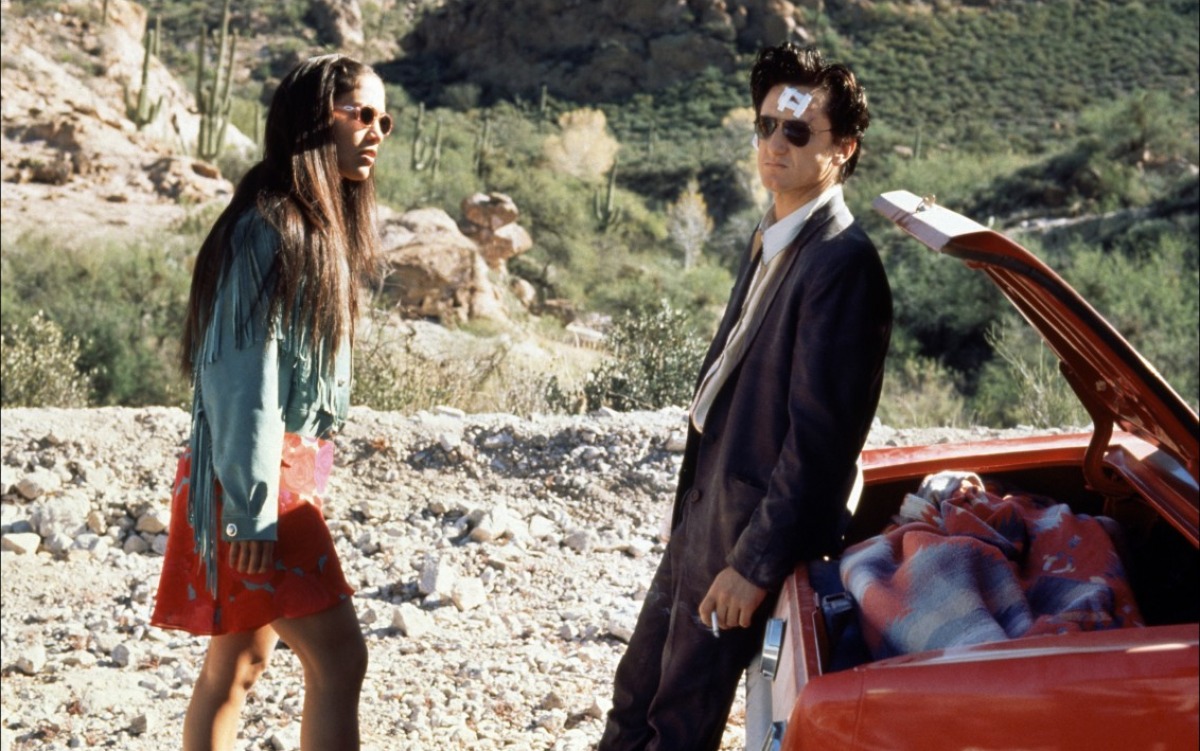
U Turn was the end of an era for Oliver Stone. First and foremost, it was his (to date) last collaboration with the great cinematographer Robert Richardson (who shot all of his films from Salvador through this one.).
Secondly, it marks the last time one of Stone’s films contained the purely crazed energy and style that marked his work for well over a decade prior. Something of a spiritual cousin to Natural Born Killers (but without the social commentary), U Turn is a completely nihilistic, rudely misogynistic, and sadistically violent film that is the closest thing Oliver Stone will ever do to making a comedy.
However, as disturbing as his idea of humor is (the film is a dark comedy of errors on acid that shines its light on everything from shady automotive repairmen to disgusting incestuous relationships), U Turn somehow manages to be a memorable, graphic, and hilariously sick trip into the darkest recesses of American culture imaginable.
12. The Doors (1991)
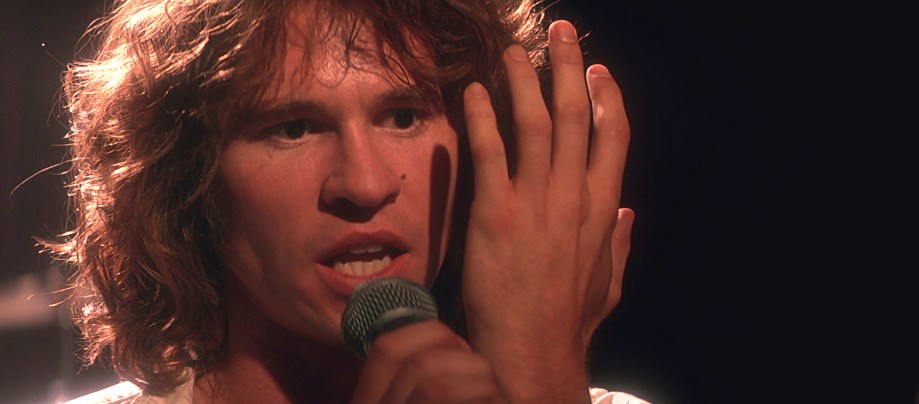
Sure it’s a ridiculous, bloated, narcissistic epic about a ridiculous, bloated, narcissistic rock star, but that’s kind of the point. Or maybe not. Who cares? The Doors, Oliver Stone’s love letter to the sixties and to its ultimate poster child/antihero is a great, enthralling cinematic trip.
What other filmmaker than Stone could have believably turned Jim Morrison (a drunkard with a solid bass voice who arguably made a career out of his acid trips) into a shamanistic, Indian-spirit-summoning, twentieth-century Dionysian figure and made it such excessive, decadent fun?
11. Heaven & Earth (1993)

Right next to number ten and number six on this list, this is easily one of Stone’s most misunderstood and underappreciated directorial efforts to date. Stone seemingly took some of his most vicious criticisms (misogyny, bloated American patriotism, machismo, glorification of violence, excessive materialism, etc.) to heart and challenged himself to view his work through a different perspective: a poor Vietnamese woman’s experiences both at home and abroad during and after the Vietnam War.
Heartbreaking, beautiful, sensitive, and unique for any filmmaker, Heaven & Earth challenges its viewers in the same way Stone challenged himself: to step outside of themselves, empathize with the unthinkable, and view the world in a completely different way.
The results are highly memorable and sadly underappreciated to this day. Heaven & Earth is a relatively quiet masterpiece overshadowed by the more bombastic efforts of a filmmaker who never made a name for himself by being synonymous with subtlety.
10. Talk Radio (1988)
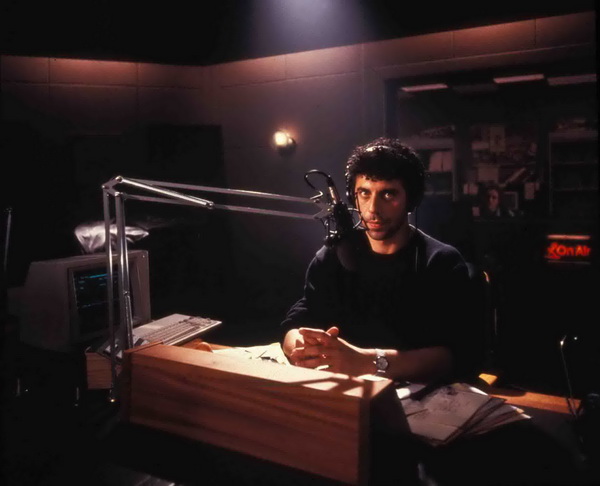
Oliver Stone’s adaptation of Eric Bogosian’s (who also stars and co-wrote the screenplay) celebrated stage play is probably the most underappreciated film in his canon. Written off as a simple but solid film that addressed a number of eighties political issues (drug culture, prison reform, celebrity obsession, etc.), Talk Radio is, in actuality, a brilliant, intense, and innovative fictional character study of a successful radio talk show host (Bogosian) named Barry Champlain.
Champlain is so disgusted and frightened by the source of his success (his largely uneducated fan base), that he falls into a spiral of anger, self-loathing, self-destruction, and emotional cruelty. While largely unknown, Talk Radio contains some of the most simple, direct, and honest work of Oliver Stone’s career.
9. Salvador (1986)
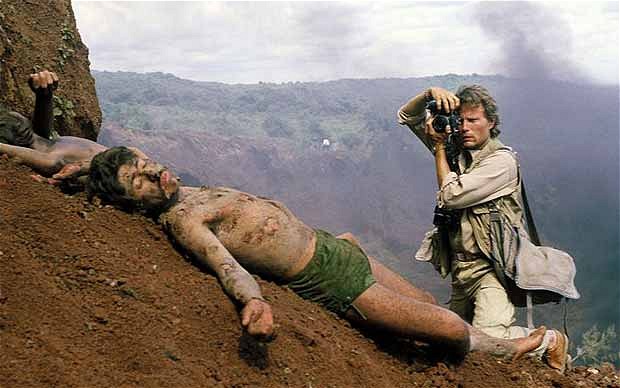
A (then) modern-day western loaded with heavy political messages, Salvador is a lean, mean, and dirty little film that marks the first time Stone was in full control of his talents as a director (and the first time audiences could forgive him for his previous efforts, 1974’s Seizure and 1981’s The Hand).
The film features a couple of wonderfully politically incorrect antiheroes (James Woods and James Belushi, both in career-best performances) who get caught up in violent political struggles in eighties El Savador. Salvador is Stone at his best: thunderously entertaining, meaningfully astute, and excessively, sickly funny. It’s an experience and a ride unlike any other, both in and outside of Oliver Stone’s career.